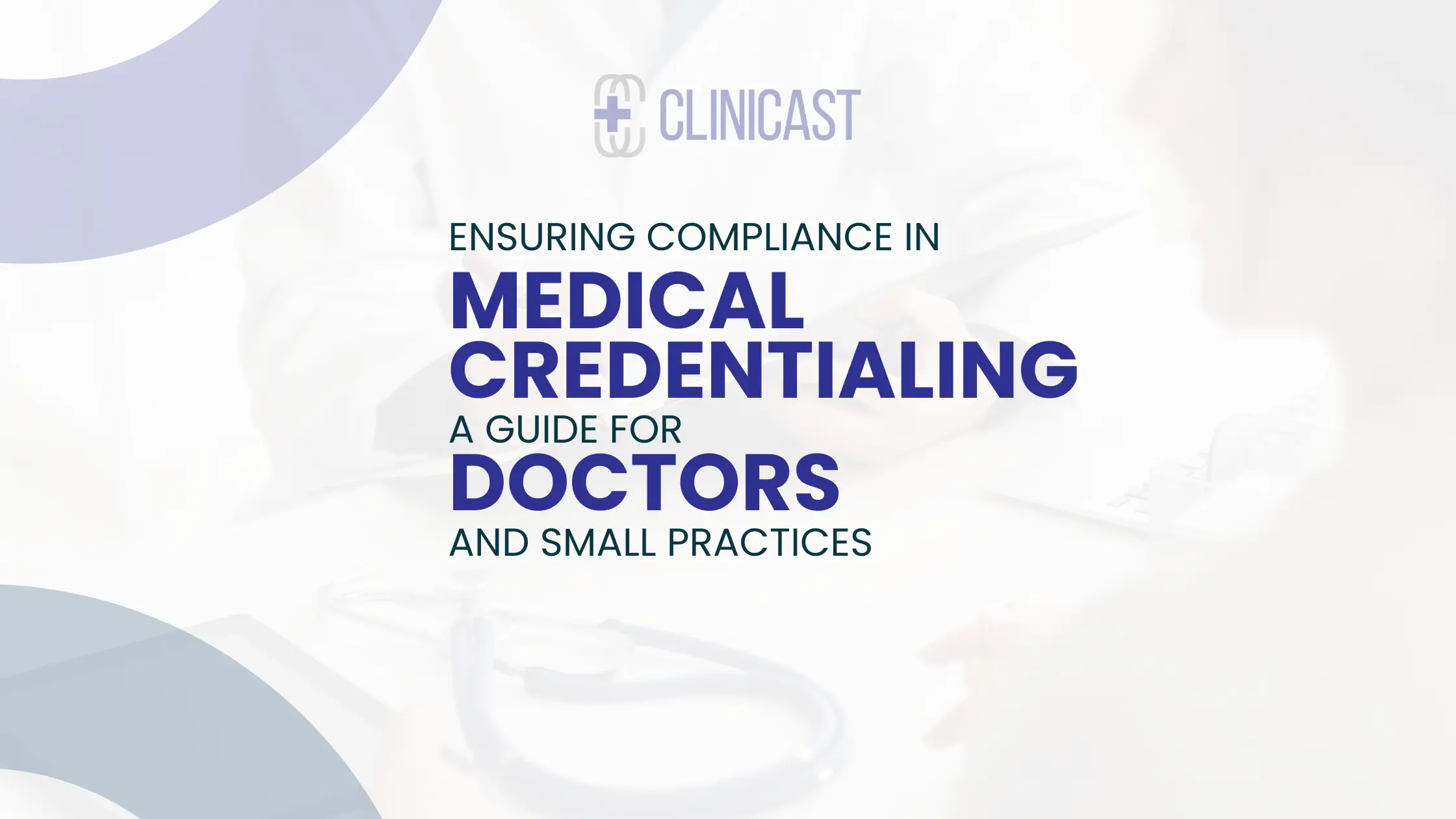The Importance of Medical Credentialing
Medical credentialing is essential for doctors and small practices. It’s not just a process—it’s an assurance that healthcare providers meet rigorous professional standards. In the diverse healthcare landscape of the USA, ensuring the integrity of this process is crucial.
Accreditation Bodies and Their Role
In the USA, several key accreditation bodies set the bar for medical credentialing. Their role is indispensable for doctors and small practices aiming to maintain high standards of care.
For doctors and small practices, navigating the intricate world of medical credentialing can be challenging. However, with the right best practices, this journey becomes more straightforward.
Navigating the world of medical credentialing can be intricate. However, the journey becomes more navigable when armed with best practices:
In healthcare, regulations aren’t just guidelines—they’re mandates that ensure high-quality patient care. For doctors and small practices, it’s crucial to understand and adhere to these regulations, ensuring they operate at the highest standards.
In the realm of healthcare, regulations are not mere guidelines; they are mandates. They ensure that patient care remains paramount and that every healthcare provider operates at the highest standard. For doctors, physicians, small practices, and hospitals, understanding and adhering to these regulations is crucial.
Why Compliance Matters
Compliance in credentialing is not just about adhering to rules. For doctors and small practices, it’s about ensuring patients receive care from qualified professionals. Non-compliance can result in legal implications, reputation damage, and potential patient harm.
Conclusion
Medical credentialing is a complex but essential journey. For doctors and small practices in the US, understanding and embracing the standards is not just about regulatory adherence—it’s a clear reflection of dedication to patient care and professional integrity.
Frequently Asked Questions (FAQs)
The National Committee for Quality Assurance (NCQA): The NCQA evaluates and accredits health plans and healthcare organizations. For doctors and small practices, gaining this accreditation can be a mark of quality assurance to patients.
The Accreditation Association for Ambulatory Health Care (AAAHC): Focusing on ambulatory care, the AAAHC ensures that patient care adheres to top standards. It’s a vital accreditation for doctors and clinics providing outpatient services.
Regularly Update Credentialing Policies: The world of healthcare is dynamic. Doctors and small practices should regularly review and update their credentialing policies to stay compliant and avoid potential pitfalls.
Thorough Verification: It’s paramount to rigorously verify every detail provided by healthcare professionals. Inaccuracies in education, training, or certifications can jeopardize patient trust and care quality.
Continuous Monitoring: Credentialing isn’t a set-it-and-forget-it task. For doctors and small practices, continuous monitoring is essential to ensure that providers consistently meet and uphold the standards.
Engage with Technology: Use of credentialing software can streamline the process, ensuring timely updates and verifications.
Stay Informed: Regularly attending workshops, seminars, and trainings can help you stay updated with the latest in credentialing standards.
What is the main purpose of medical credentialing?
Medical credentialing verifies and validates the qualifications and practice history of healthcare providers, ensuring they meet the rigorous standards of their profession.
How often should credentialing policies be updated?
While there’s no set timeline, it’s a best practice to review and update policies regularly, considering the ever-evolving healthcare landscape.
Are there tools or software to assist with the credentialing process?
Yes, several credentialing software solutions can streamline the process, ensuring timely updates, verifications, and compliance checks.
What happens if a healthcare provider doesn’t maintain compliance?
Non-compliance can lead to various repercussions, including lawsuits, fines, loss of license, a tarnished reputation, and potential revenue loss from insurers.
How can one stay updated with the latest in credentialing standards?
Regularly attending workshops, seminars, and training sessions related to medical credentialing can help healthcare providers stay updated.
What is The Joint Commission (TJC)?
TJC is an independent, not-for-profit organization that accredits and certifies over 22,000 healthcare organizations and programs.



